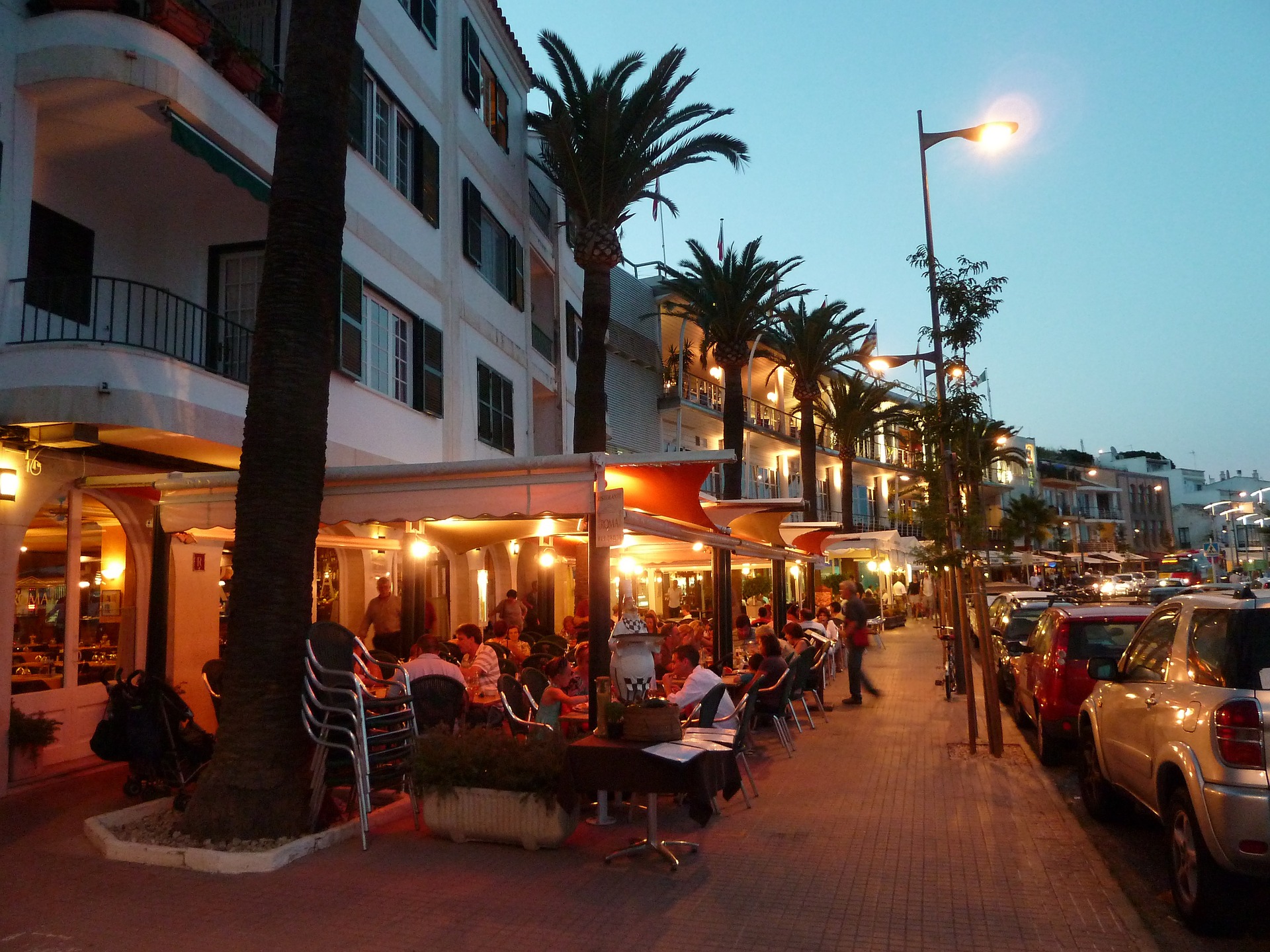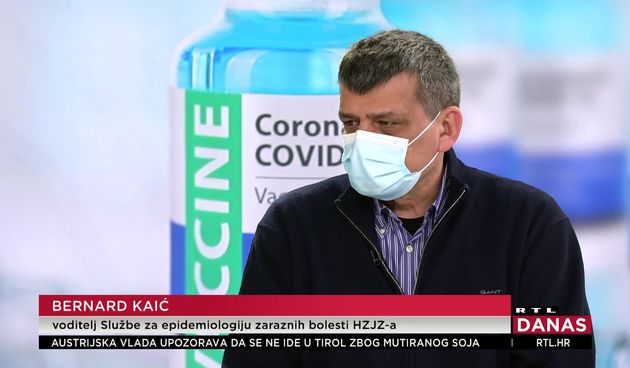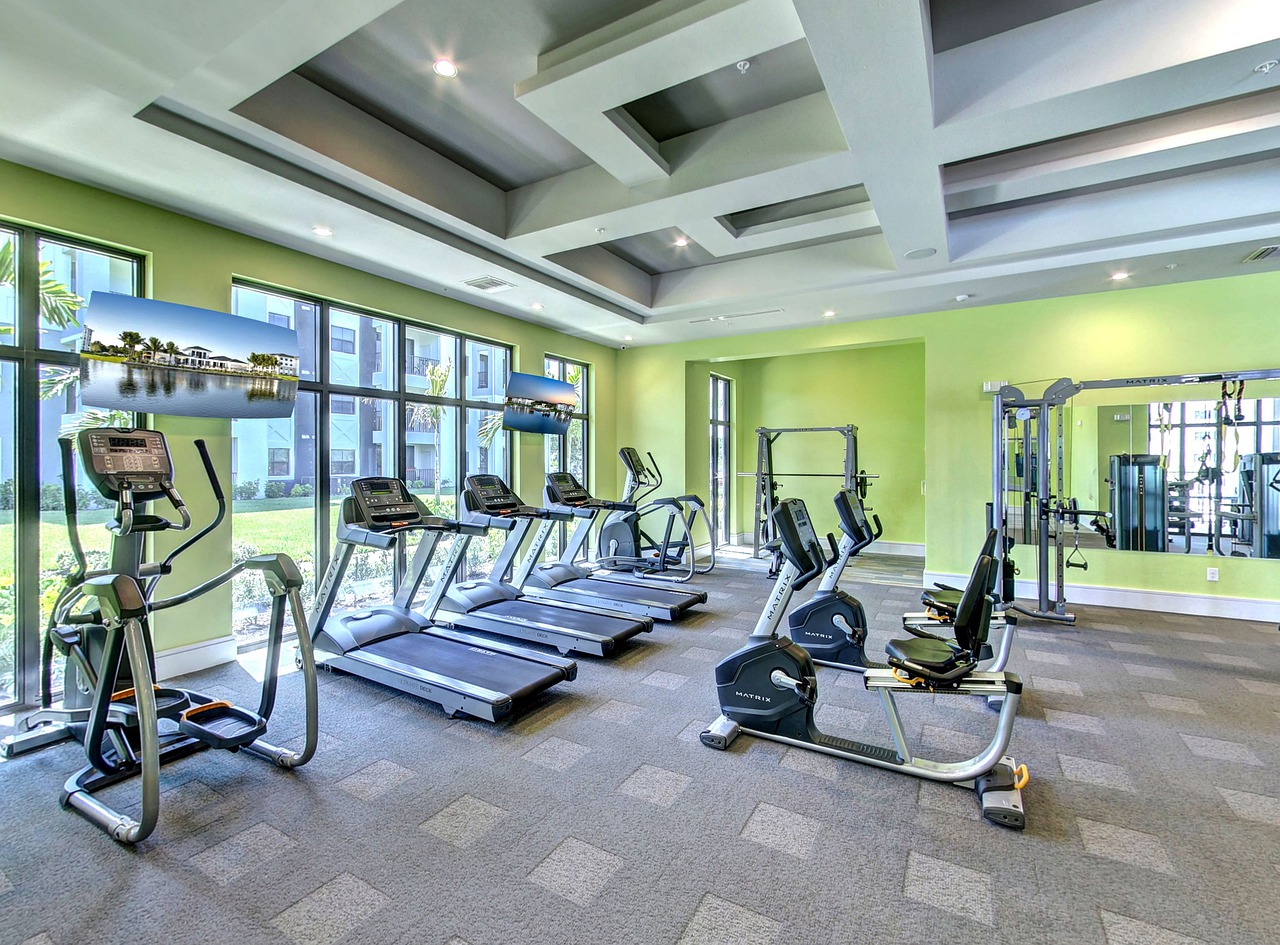Croatia Reports 695 New Coronavirus Cases, 36 Deaths
ZAGREB, 20 May 2021 - Over the past 24 hours, Croatia has registered 695 new cases of coronavirus infection and 36 related deaths, the national COVID-19 crisis management team said on Thursday.
The number of active cases stands at 5,084. There are 1,416 COVID patients in hospitals, 148 of whom are on ventilators, and 17,490 people are in self-isolation.
To date, 1,953,059 people have been tested for the novel virus, including 7,038 in the last 24 hours.
Since 25 February 2020, when Croatia confirmed its first case of the infection, 352,692 people have been registered as having contracted coronavirus and 7,828 of them have died.
A total of 1,450,169 doses of vaccine have been administered. A total of 1,109,161 people have received one dose and 341,008 have received both doses.
For all you need to know about coronavirus specific to Croatia, including travel, border, and quarantine rules, as well as the locations of vaccination points and testing centers up and down the country, make sure to bookmark our dedicated COVID-19 section and choose your preferred language.
HZJZ: One in Three Adults Vaccinated
ZAGREB, 20 May 2021 - As of today, every third adult in Croatia has been vaccinated against COVID-19, the Croatian Public Health Institute (HZJZ) said on Thursday.
On Wednesday, 19 May, 43,890 doses of the vaccine were used, and the number of persons that have received at least one dose reached 1,109,161, which is 27% of the population or 33% of the adult population, while 341,008 persons have received both doses.
According to data from the eCijepih platform, as of 20 May, every third adult in Croatia has been vaccinated, which is a big step forward compared to early May, when on 1 May every fifth adult citizen of Croatia had been vaccinated, the HZJZ said.
First dose vaccine coverage is highest in Zagreb, 31% of the total population or 37.6% of the adult population, and second dose vaccine coverage is highest in Sisak-Moslavina County, 12% of the population or 14.4% of adults.
"These are encouraging data that give us reason for optimism when it comes to meeting the goal of vaccinating over a half of Croatia's adult population by the end of June. Vaccination is going according to plan, the epidemiological situation is better than in previous weeks and this is certainly good news, especially in the context of the upcoming tourist season," said HZJZ deputy director Ivana Pavić Šimetin.
For all you need to know about coronavirus specific to Croatia, including travel, border and quarantine rules, as well as the locations of vaccination points and testing centres up and down the country, make sure to bookmark our dedicated COVID-19 section and choose your preferred language.
Croatia Reports 253 New Coronavirus Infections, 34 Deaths
ZAGREB, 10 May 2021 - In the last 24 hours, there have been 253 new coronavirus infections in Croatia and 34 people have died, the national COVID-19 crisis management team said on Monday.
Currently, there are 8,251 active cases, including 2,033 who are hospitalized, of whom 229 are on ventilators.
Since 25 February 2020, when Croatia registered its first case of this infection, a total of 344,747 people have been registered as having contracted the novel virus, and 7,503 have died.
So far, more than 1.88 million tests have been conducted.
A total of 328,993 people have recovered, including 1,589 in the last 24 hours.
There are 24,039 people in self-isolation.
By 9 May, 1,131,607 vaccine doses were administered. A total of 879,312 people have been vaccinated with at least one dose and 252,295 have received both doses.
Croatia's Coronavirus Update: 665 New Cases, 45 Deaths, 1,704 Recoveries
ZAGREB, 9 May 2021 - In the last 24 hours, of 7,060 tests performed for coronavirus in Croatia, 9.4% of them, that is 665, have turned out to be positive, the national COVID-19 crisis management team reported on Sunday.
In the last 24 hours, the COVID-related death toll has risen by 45 to 7,469.
Currently, there are 9,621 active cases of infection with this novel virus. Of them, 2,032 patients are receiving hospital treatment, including 234 patients on ventilators.
Since 25 February 2020, when Croatia registered its first case of this infection, a total of 344,494 people have been registered as having contracted coronavirus, and 327,404 have recovered, including 1,704 in the last 24 hours.
So far, more than 1.87 million tests have been conducted.
There are 26,413 people in self-isolation.
Over 1.1 million vaccine doses administered, one in four adult Croats get vaccinated
Since the start of this year, when Croatia began implementing the COVID-19 vaccine rollout plan, 1,117,709 doses have been administered. More than 867,000 people have been inoculated with at least one shot of the COVID vaccine, and over 250,000 have received both doses of the two-dose vaccine.
For all you need to know about coronavirus specific to Croatia, including travel, border, and quarantine rules, as well as the locations of vaccination points and testing centres across the country, make sure to bookmark our dedicated COVID-19 section.
Croatia's Coronavirus Update: 1,342 New Cases, 36 Deaths,1,866 Recoveries
ZAGREB, 8 May 2021 - Over the past 24 hours, 1,342 new cases of coronavirus infection have been confirmed in Croatia, and there have been 36 related deaths bringing the death toll to 7,424, the national COVID-19 crisis management team said on Saturday.
The number of active cases in Croatia today stands at 10,705. There are 2,016 COVID patients in hospitals, 235 of whom are on ventilators.
Since 25 February 2020, when Croatia registered its first case of the infection with the novel virus, a total of 343,829 people have been registered as having contracted coronavirus, and 325,700 have recovered, including 1,866 n the last 24 hours.
There are 28,152 people in self-isolation.
To date, 1,871,290 people have been tested, including 7,985 over the past 24 hours when the percentage of positive tests stood at 17%.
One in four adults vaccinated against COVID-19
Since the start of the implementation of the vaccine rollout plan at the beginning of this year, 835,320 people have been vaccinated. Of them, nearly 244,000 have received both shots of the two-dose vaccine.
The Croatian Institute of Public Health underscores that to date 25% of the adult population has received COVID vaccines.
For all you need to know about coronavirus specific to Croatia, including travel, border, and quarantine rules, as well as the locations of vaccination points and testing centres across the country, make sure to bookmark our dedicated COVID-19 section.
Croatia's Coronavirus Update: 349 New Cases, 36 Deaths, 2,087 Recoveries
ZAGREB, 3 May 2021 - Over the past 24 hours, Croatia has registered 349 new cases of the coronavirus infection and 36 deaths, the national COVID-19 crisis management team said on Monday.
The number of active cases in Croatia today stands at 11,378. There are 2,247 COVID patients in hospitals, 244 of whom are on ventilators.
Since the first confirmed case of the infection in Croatia on 25 February 2020, a total of 335,522 people have been registered as having contracted coronavirus, 7,218 of them have died, while 316,926 have recovered, including 2,087 in the last 24 hours.
There are currently 30,225 people in self-isolation.
To date, 1,827,068 people have been tested, including 4,193 over the past 24 hours.
As of 2 May, 908,839 doses of the vaccine have been administered in Croatia, and 708,137 people have been vaccinated, with 504,856 people receiving the first dose and 200,702 receiving both doses. For 2,579 people there is no data on how many doses they have received.
For all you need to know about coronavirus specific to Croatia, including travel, border, and quarantine rules to the locations of vaccination points and testing centres throughout the country, make sure to bookmark our dedicated COVID-19 section.
Croatia Reports 944 New Coronavirus Cases, 52 Deaths
ZAGREB, 2 May 2021 - Croatia has registered 944 new coronavirus cases and 52 COVID-related deaths in the last 24 hours, the national coronavirus response team reported on Sunday.
The number of active cases currently stands at 13,152. Among them are 2,223 infected people who are hospitalized, including 240 who are on ventilators.
Since 25 February 2020, when the first case was confirmed in the country, 335,173 people have been registered as having contracted the novel virus, of whom 7,182 have died and 314,839 have recovered, including 2,016 in the last 24 hours. Currently, 32,614 people are self-isolating.
A total of 1,822,875 people have been tested to date, including 8,370 in the last 24 hours.
So far, 907,575 vaccine doses have been administered; 503,960 people have received the first dose and 200,518 have received both doses. For 2,579 people there is no information on the number of doses administered.
The head of the national coronavirus response team, Interior Minister Davor Božinović, said that the daily number of new cases was on the decline.
"We have a reason for optimism, but only if we comply with the measures aimed at protecting people'', Božinović told the press during a visit to the eastern town of Borovo.
For all you need to know about coronavirus specific to Croatia, including travel, border, and quarantine rules to the locations of vaccination points and testing centres throughout the country, make sure to bookmark our dedicated COVID-19 section.
Index: Cafe Terraces Open In Two Weeks If Numbers Stay Low
February 17, 2021 – Indoor sports return and cafe terraces open on Monday 1st March if infection numbers remain low, learns Croatian media outlet Index.
By the time spring arrives, Croatian coffee lovers should be back enjoying their drinks outside their favourite cafe bar. Cafe terraces open on Monday 1st March 2021 if Coronavirus infection numbers remain low and stay on their current trajectory, according to Croatia media outlet Index.
Indoor sports will also return on the same date, with the same stipulation that infection numbers remain low. Having cafe terraces open again cannot come too soon for frustrated business owners. At the moment, they are only permitted to serve coffee to go. According to Index, from on Monday 1st March 2021, cafe terraces open and people will no longer need to congregate on the street outside, in parks or on benches to enjoy their drinks.
“Measures should be further relaxed throughout Croatia as of March 1, including the much-anticipated opening of cafe terraces,” says the portal. Cafe terraces open and other relaxed measures depend on the prerequisite of figures remaining at the level they are at now. “The share of newly infected in the number tested in recent days is below five percent,” Index adds.
Headquarters and the government had already announced that the next round of concessions could be expected in early March. Cafe terraces open in Croatia from March 1st 2021, if Coronavirus numbers remain low, say media outlet Index
Cafe terraces open in Croatia from March 1st 2021, if Coronavirus numbers remain low, say media outlet Index
Croatian cafe terraces open, the interior of cafes and restaurants remain closed
“As we find out, the terraces of cafes and restaurants will definitely open on March 1,” wrote Index. “However, according to information from a source close to the Headquarters, the closed (interior) parts of cafes and restaurants will not be opened. (This) is realistically expected in April at the earliest.”
“Once cafe terraces open, guests will most likely not be able to enter the interiors of cafes and restaurants, except perhaps for the use of toilets, to prevent indoor parts of cafes and restaurants from being used and guests being served there. Closed spaces are still considered by headquarters (to be) an extremely high risk when it comes to the spread of coronavirus.”
Further relaxation of Coronavirus measures: Indoor sports to return
According to Index, although the first information received said that from March 1, only indoor sports for children would be opened, the portal has discovered that instead all indoor sports should be opened, with prescribed epidemiological measures. They remind that, according to current measures, only gyms, swimming pools and contactless individual ball sports are allowed.
Public gatherings / marketplaces / fairs
“There should be concessions when it comes to fairs, but it is not yet completely clear under what conditions,” says the portal. Like supermarkets, open-air and indoor markets are currently permitted to operate. The newly relaxed measures will pertain to similar, but more irregular events at which arts & crafts, books and other goods are on display for sale. The portal say that the vending and consumption of food – which is traditional at such events – will likely not be permitted for now.
“The headquarters is inclined to open fairs where products are sold or exhibited, but the consumption of food and drinks might be limited to prevent excessive gatherings and socializing,” they say.
Relaxation of Coronavirus measures pertaining to private gatherings
“The allowed number of people at various gatherings should not change significantly, only minor corrections are possible,” claims the portal, adding that the current ban on the gathering of people from more than two households may instead be downgraded to a recommendation. The portal reminds that this measure has not been strictly enforced in any way before.
"To give way on March 1, the numbers have to stay at about the level they are now. But the pressure is great - no one wants to keep something closed that should not be kept closed. Most of it is already open, so there remains a narrow circle of what can still be given,” a source close to the Headquarters is quoted as telling Index.
Friction between regional and national authorities over easing of Covid-19 measures
Even if cafe terrace open on March 1st, Index concludes their article by reminding that a disparity between regional and national authorities is still causing some friction. The friction between two north-westerly regions of the country and national headquarters is specifically addressed.
“The Headquarters believes that the announcement of the Istrian Headquarters that they will open the terraces of cafes and restaurants on March 1 was very incorrect. They (national headquarters) say that this opening is planned at the level of the whole of Croatia anyway.”
“However, the decision of the Primorje-Gorski Kotar headquarters, which postponed the opening of bookmakers and casinos in that county, is perhaps even more critically commented on. The government states that the opening of bookmakers (betting shops) and casinos is a purely financial decision and ironically comments that if the Primorje-Gorski Kotar County wants to leave these facilities closed, they should (themselves) cover the costs that will be incurred,” says the Index article.
Index claims that these moves from Istria and Rijeka (Primorje-Gorski Kotar) are regarded in the National Headquarters and the government as politicking and that they are connected with the upcoming local elections.
For the latest travel info, bookmark our main travel info article, which is updated daily.
Read the Croatian Travel Update in your language - now available in 24 languages
Epidemiologist: At This Rate, Vaccination Goal Won't Be Met Until Autumn
February 9, 2021 – In a Croatian media TV interview, epidemiologist of the Croatian Institute of Public Health Bernard Kaić yesterday said the plan to vaccinate half of the population by the summer will be delayed. He predicted that if Croatia continues vaccination at its current rate, the goal would not be reached until autumn, possibly late autumn
Epidemiologist of the Croatian Institute of Public Health Bernard Kaić, speaking to Croatian media RTL, told them the plan to vaccinate half of the population by the summer will be delayed. The epidemiologist predicted that if Croatia continues vaccination at its current rate, the goal of vaccinating half of the population within the country will not be completed until autumn, possibly late autumn.
"I can't say (by) exactly how much,” he told RTL, regarding how much delay will occur, “because we still don't know how many vaccines we'll get in March. And (how much) after March we (still) have no idea.”
“If this pace continues, it would take four million doses to vaccinate half the population. We won't achieve that until autumn for sure, and it’s late autumn,” the epidemiologist said.
According to an article in Index, the epidemiologist said that, as things currently stand, there will be three vaccines used in Croatia - AstraZeneca, Moderna and Pfizer / BioNTech. They will be used concurrently, with vaccinations from all three available in Croatia at the same time.
When asked which vaccine he would choose to be vaccinated with, the epidemiologist answered that he did not know and that he was glad that he did not have the opportunity to choose. "There was only one offered so I got vaccinated,” said the epidemiologist. “It would be really hard to decide."
When asked why some states have given up vaccinating those over the age of 65 with the AstraZeneca vaccine, the epidemiologist explained that in currently available results from clinical studies the messenger RNA vaccine had proven to be somewhat more effective in preventing mild forms of Coronavirus than the AstraZeneca vaccine. Some of the vaccines work in different ways. However, the epidemiologist ultimately said that it was expected the AstraZeneca vaccine would prove to be effective, it was just that this had not yet been proven statistically. RTL screenshot
RTL screenshot
Later in the interview, the epidemiologist was asked “Due to skepticism towards AstraZeneca, many associations in (Croatia's) border areas plan to take pensioners to Serbia for vaccination. How smart is it to accept such an arrangement?”
The epidemiologist replied; “My only fear is that such organized trips do not turn into corona-trips so that people do not get infected on the way back and forth and do themselves harm. I would wait.”
The three vaccines for which Croatia is currently expecting deliveries are now not the only vaccines available. Speaking in a discussion on the same evening on another Croatian media outlet, HRT, Zlatko Trobonjača, an immunologist from the Rijeka Clinical Hospital, spoke about the Russian vaccine.
"Our country is obviously following the EU and its decisions,” he said. “The EU has entered into talks with Russia. It can be expected that these talks will continue. It is a quality vaccine, it provides high protection.”
"As for the quality of the vaccine, we can see that it is not harmful and it could be used in our country. The EU is oriented towards Western companies. And now, they (the companies) did not stick to the agreement," Trobonjača said, adding that he would be vaccinated with the first vaccine that was made available to him.
Jutarnji List: Croatian Cafes Open on Monday 15 February (and Gyms too)?
February 2, 2021 – The wait is over! In less than two weeks, Croatian cafes and gyms will open, if infection numbers continue on their current downward trajectory
With the spring season just around the corner, people will soon be able to once again enjoy coffee on the sun-filled daytime terraces of Croatian cafes. If Coronavirus infection numbers continue on their current downward trajectory, Croatian cafes and gyms will open on Monday 15 February. All businesses will still have to operate under strict epidemiological measures.
Deputy Prime Minister and the Chief of Staff, Davor Božinović, spoke about the forthcoming concessions on Croatian cafes and gyms, but a fuller picture of how the concessions will actually look was discovered unofficially by Croatian daily Jutarnji List. It was published in the evening of Monday 1st February 2021. The good news soon travelled across Croatia. It will come as a great relief to many independent business owners who have not been allowed to operate.
Business owners have been increasingly on edge over recent weeks, with protest openings of Croatian cafes and gyms threatened to take place in defiance of the current ban on operations (indeed, some did). Owners of Croatian cafes were particularly irked by the seeming inconsistencies in current measures – fast food outlets, gas service stations and bakeries were all permitted to sell coffee to go. People took advantage of this and thereafter congregated on the streets outside such businesses to enjoy their drinks. But, Croatian cafes were still not permitted to service people wishing to drink on outside terraces in almost exactly the same manner.
Monday 15 February has long been announced as the next review date for the imposed Coronavirus measures. But, until now, nobody was certain in which way – if any – measures would be relaxed.
Under unofficial plans, from Monday 15 February Croatian cafes will be able to serve coffee and drinks to be consumed on outside terraces, with strict epidemiological guidelines in place.
Croatian cafes and gyms opening on 15 February will be conditional on a continued downturn in infection numbers and the absence of new Coronavirus strains appearing in Croatia
The re-opening of Croatian cafes and gyms is wholly dependent not only on the continuing downturn in numbers of infected but also on the condition that new strains of Coronavirus - specifically those first detected in the UK and South Africa - do not appear in Croatia between now and then.
"If the indicators are good, if the numbers go down, we will certainly not be reluctant to react,” Deputy Prime Minister Davor Božinović said, regarding the 15 February review, “our aim to strike a balance between everything - with an emphasis on health care - has brought us to a position where Croatia has the least stringent measures in the EU."
Coronavirus infection numbers in some other European territories remain at an alarmingly high rate, although a corresponding relaxation in measures for some regions of Italy was similarly announced over recent days. This is the second time since the start of the pandemic that stricter measures imposed by the Croatian government – and a widespread public observance of these measures and other guidelines - have successfully produced the intended results.


